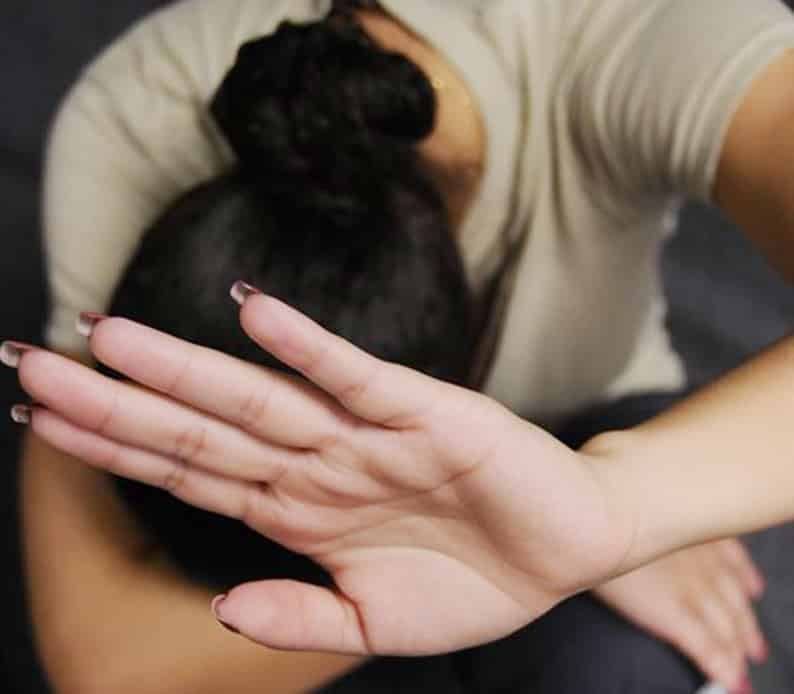
More people sought help for incidents of domestic violence during the height of the economic crisis than they did before and after, a new study on Cyprus indicates.
According to the study, the average reporting of domestic violence incidents per month rose during the economic crisis – between 2011 and 2015.
The research paper by Dr Marilena Kyriakidou, a lecturer in forensic psychology at Sheffield Hallam University in the UK, was conducted in collaboration with the Association for the Prevention and Handling of Violence in the Family (Spavo) and was published in this month’s Journal of Interpersonal Violence.
The study examined how rates of national help-seeking domestic violence contacts (DVCs) from the only non-governmental (NGO) domestic violence support agency in Cyprus, Spavo, fluctuated in relation to national unemployment data between 1996 and 2016. This concerns any communication such as telephone calls, emails, or face to face visits revealing a domestic violence incident (intimate partner violence, child abuse in the family) to seek help or guidance.
“There were significant changes to DVCs when Cyprus plunged into economic crisis, meaning that when unemployment increased, DVCs also increased,” the study said.
Spavo is considered a national database for reports of domestic violence, the study said. Records from government agencies such as the police and social welfare office have not been included due to difficulties with access.
“The entire population of Cyprus can contact Spavo to report or seek advice on domestic violence or seek shelter.”
In total, 249 months from April 1996 to December 2016 were analysed. This time period produced a total of 5,103,120 enrolments on the unemployment register and 21,774 DVCs.
Data was collected for 177 months before the economic crisis (1996 to 2010), 60 months during the economic crisis (2011 to 2015) and 12 months after the economic crisis (2016).
On average, 71.85 DVCs were made before the crisis per year, but almost doubled during the financial crisis when unemployment tripled. The numbers gradually started dropping the year after the economic crisis.
In 2000, when almost 11,000 had registered as unemployed, on average, 60.50 DVCs were made. Between 2011 and 2015, during the economic crisis, on average, 131.65 DVCs were made. There were 40,351 people registered as unemployed that year.
When unemployment peaked in 2014, at 47,196 people, the average number of DVCs reached 136.
In 2016, when the crisis was declared over, a declining number of DVCs – 96.42 – followed the drop in unemployment figures.
The study also found that Cyprus, a small nation, does not deviate from larger societies in help-seeking behaviour in the form of people contacting a national helpline when exposed to economic crises. Small nations, it said, have a relatively large and expensive public sector compared to the population thus during economic crises, access to and the quality of services offered by the public sector may be adversely affected.
“This in turn can influence how victims of domestic violence gain access to those services,” it said.
The study investigated the national DVCs in Cyprus following similar approaches of other studies carried out on the US, China, Mexico and the UK that showed that economic hardship and unemployment increase chances of conflict within a family.
Possible explanations of why DVCs increased in Cyprus during periods of high unemployment can be due to the changes of individuals’ economic power (due to their unemployment or salary), it said.
“Such changes on individuals’ economic power may have had implications on the individuals’ experience or perpetration of domestic violence.”
Economic hardship can intensify negative emotions like anger and hopelessness.
“Consequently, it is possible that these negative emotions, due to the loss of perceived control, may have changed the interactions between family members leading to an increase of DVCs in Cyprus.”
The authors stress that further studies are necessary to conclusively prove the link between the rise and fall of domestic violence incidents in relation to the economic crisis.
The study also calls for greater state support during economic crises to NGOs offering domestic violence services that are often neglected by national and international support, “when in fact they are needed more than ever in a society”.
Such support, the study said, would help NGOs and other domestic violence services maintain the best quality of their services as the numbers of people contacting them are likely to increase significantly during such times.
The post Domestic violence rose during economic crisis, study shows appeared first on Cyprus Mail.
Read more → https://cyprus-mail.com/2019/04/29/domestic-violence-rose-during-economic-crisis-study-shows/


Δεν υπάρχουν σχόλια:
Δημοσίευση σχολίου